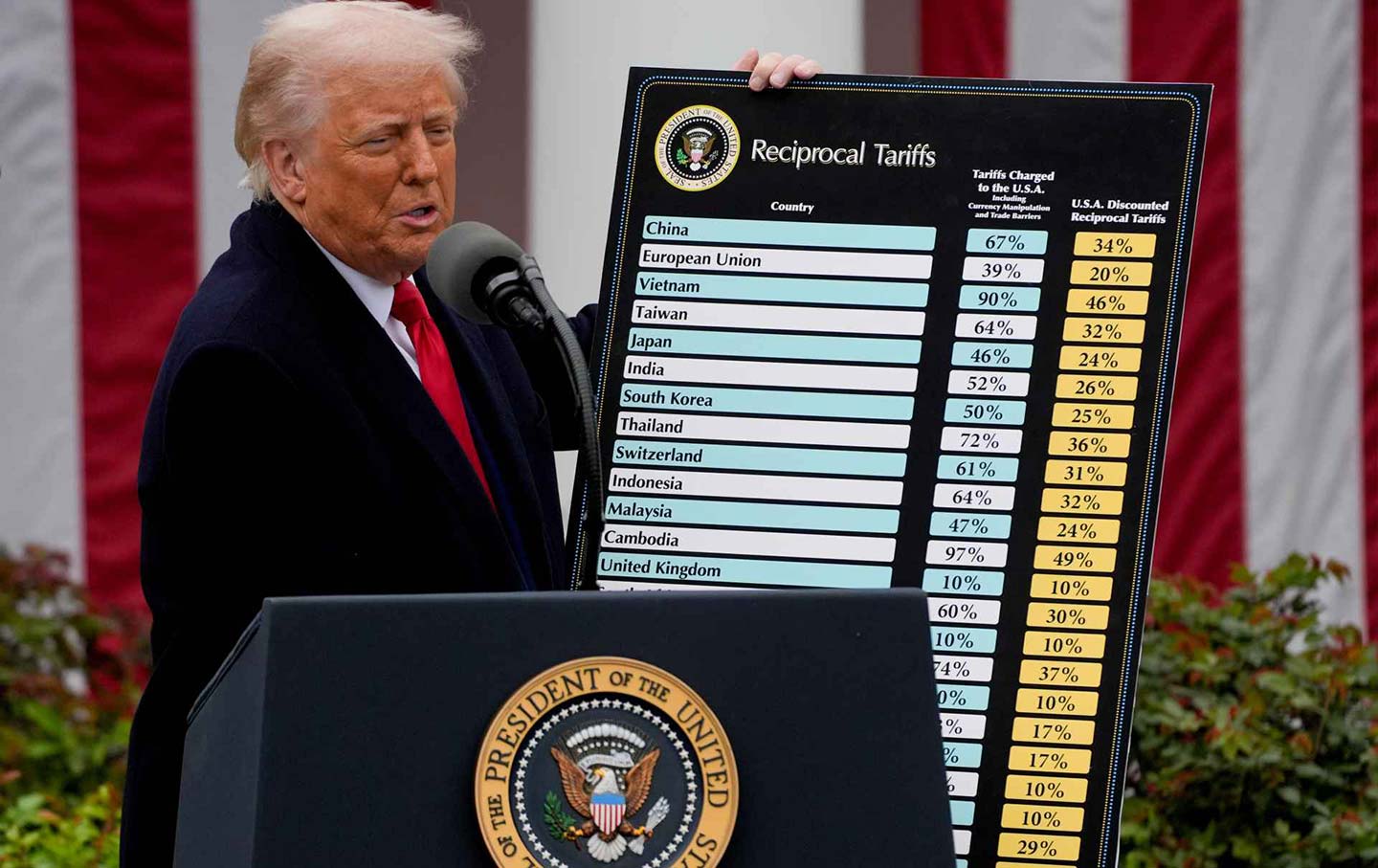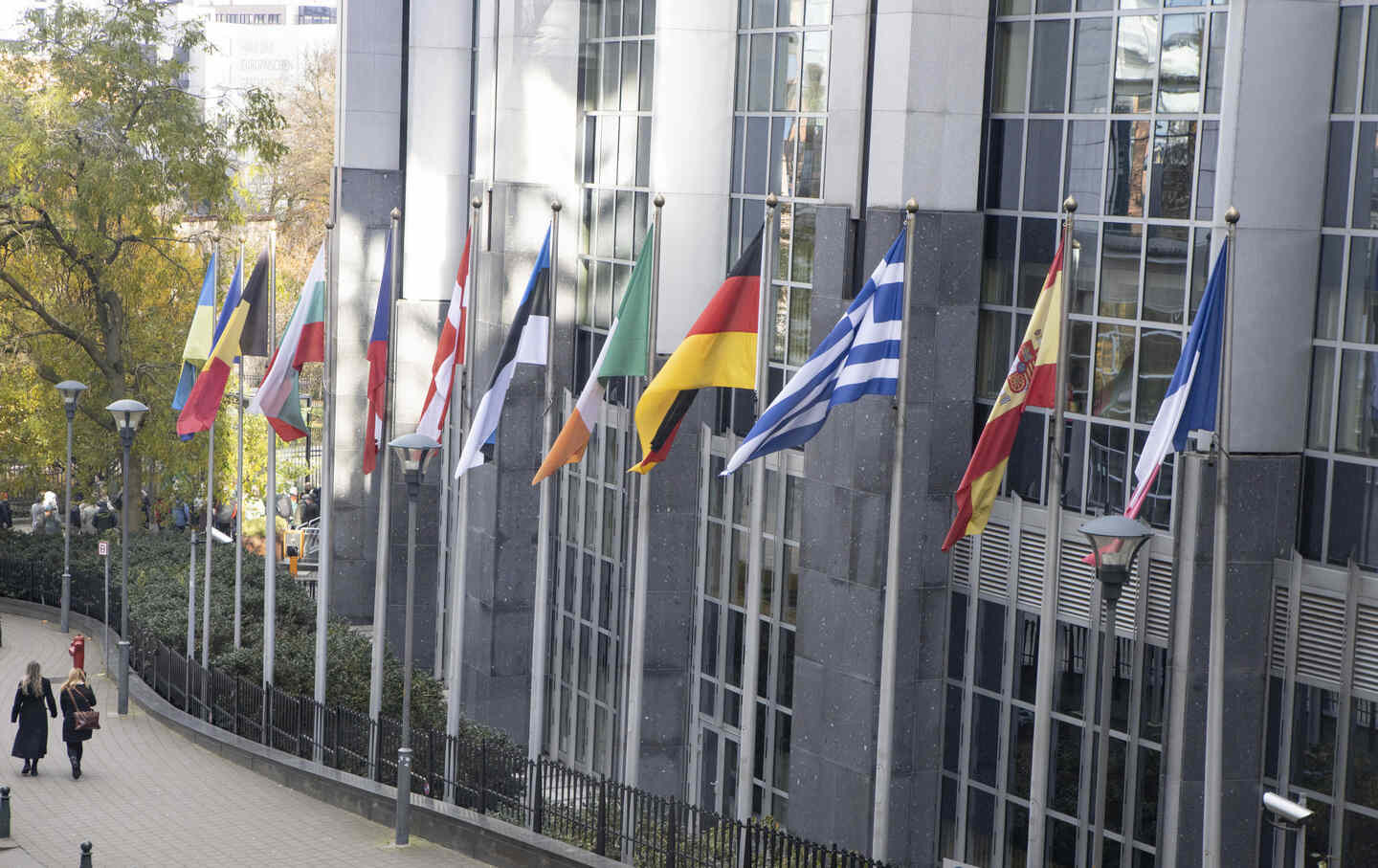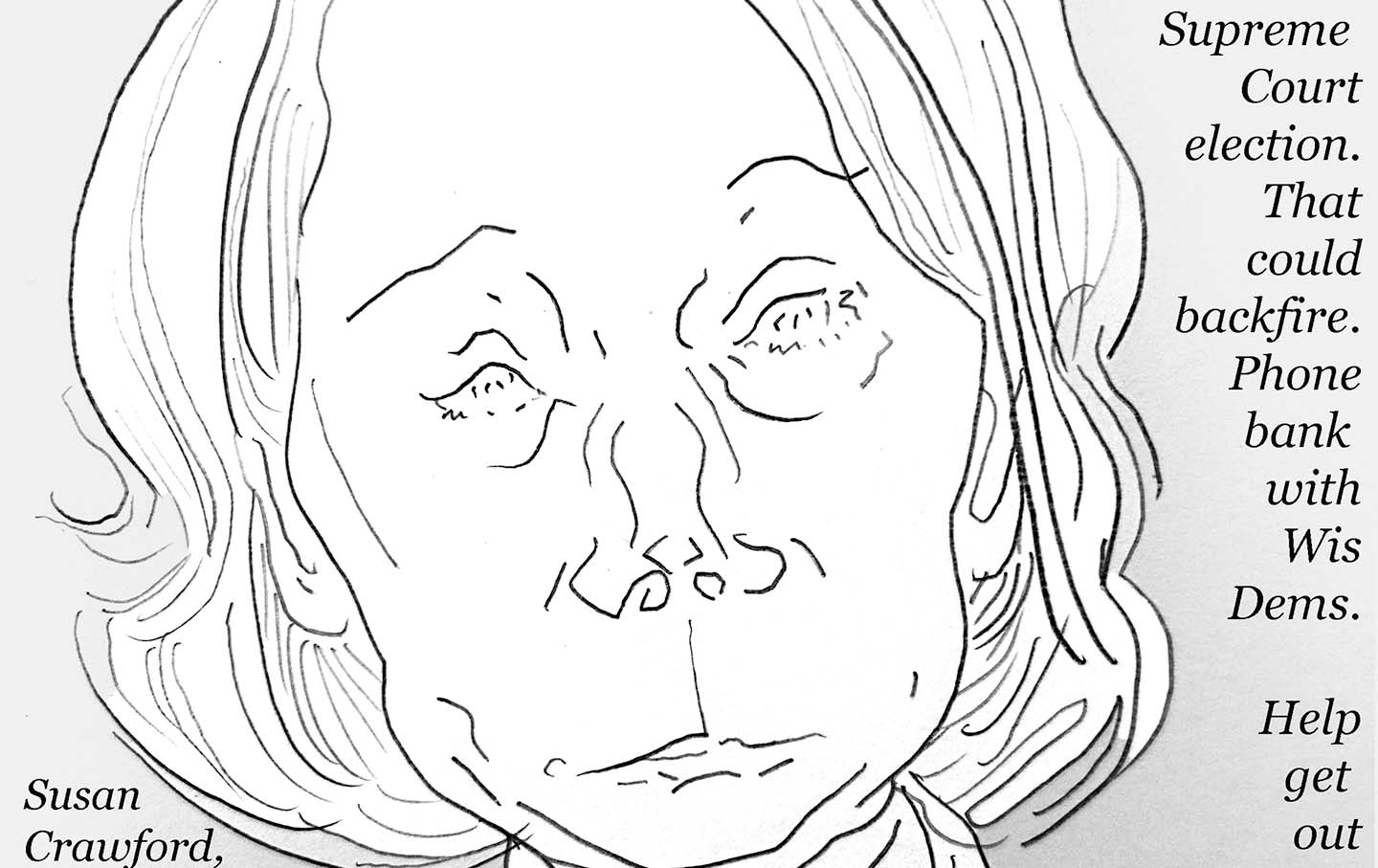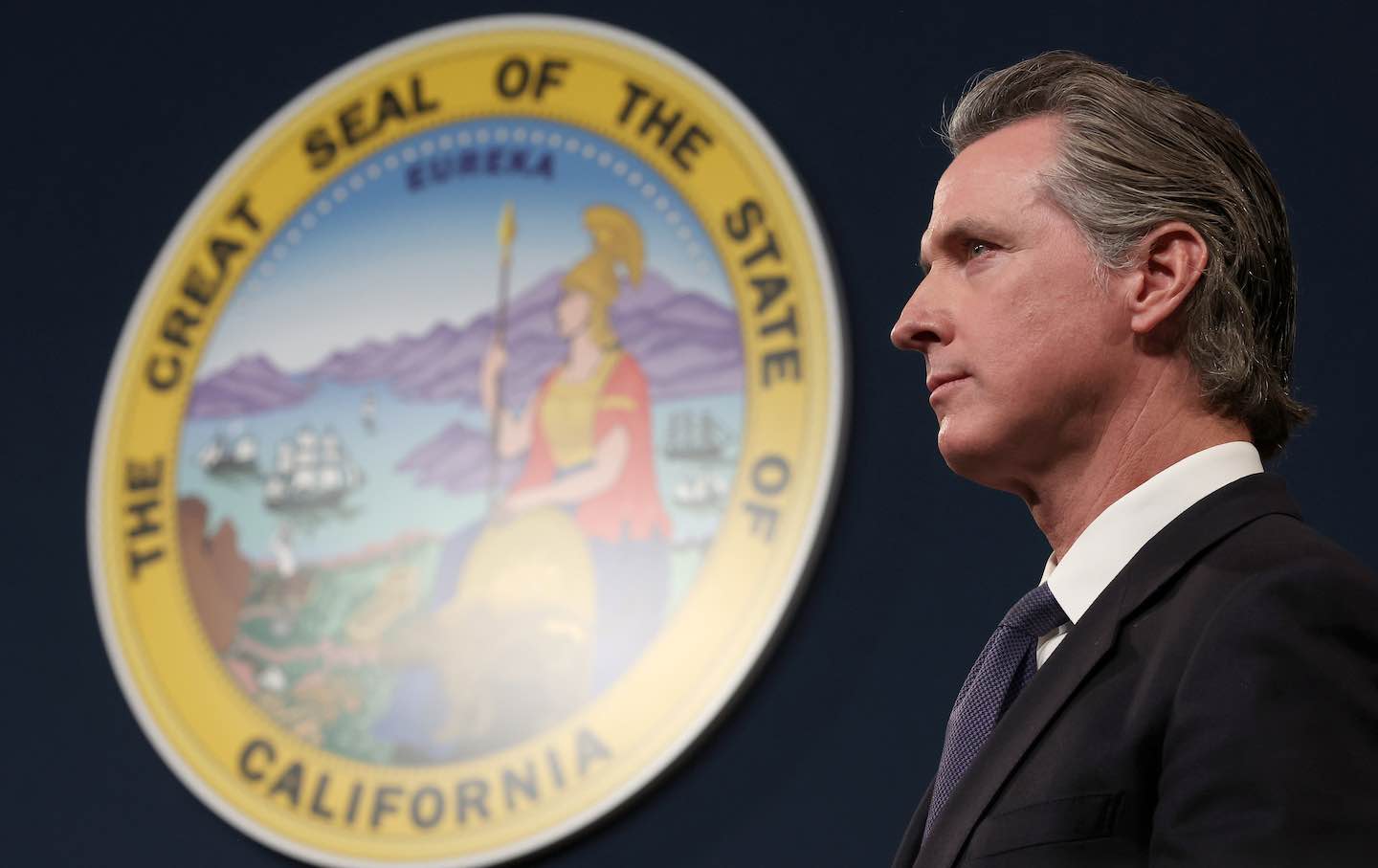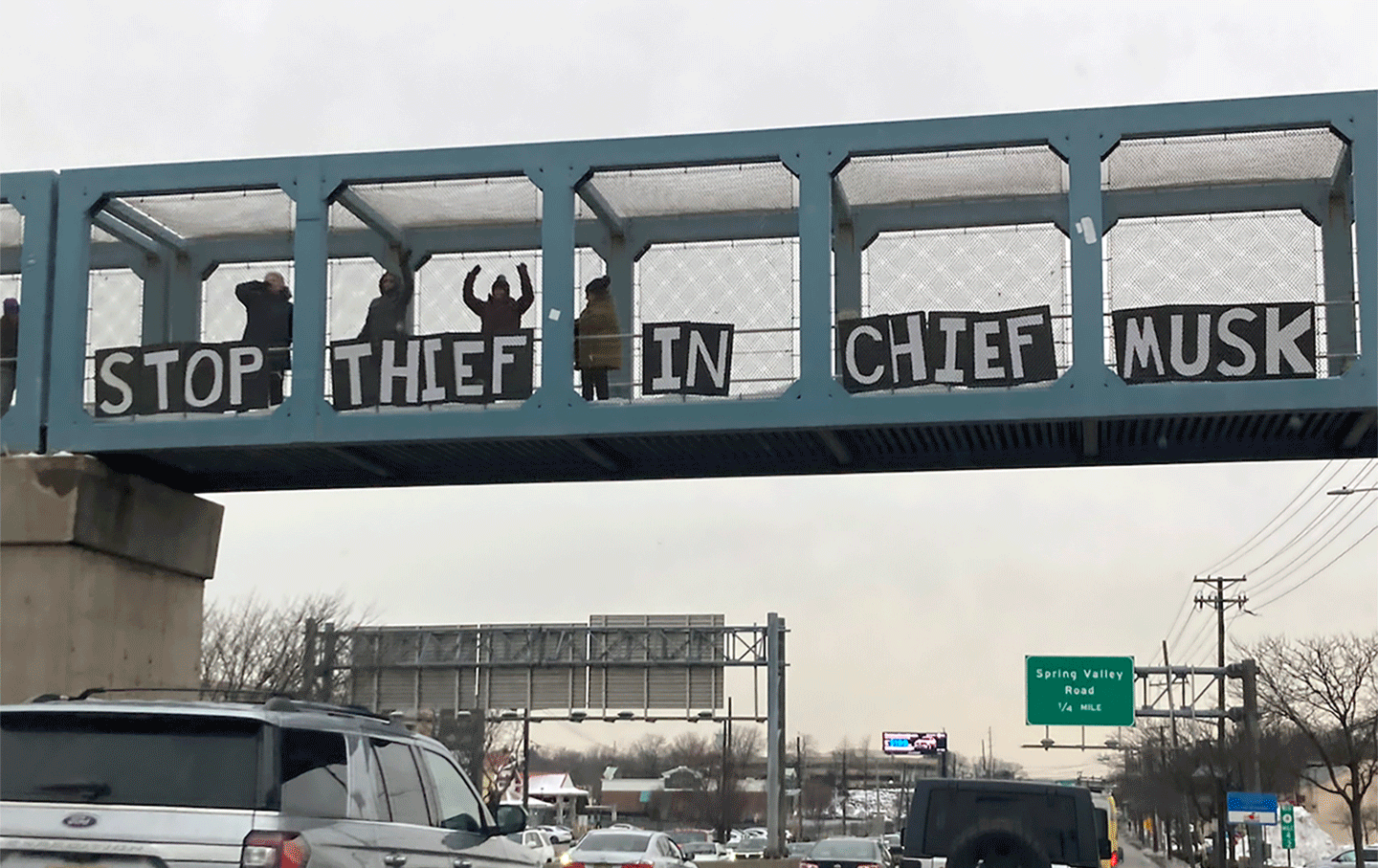The UK’s Likely Next Prime Minister Is Waging a Racist War Against the Left
Keir Starmer is obsessed with purging every scrap of dissent from the Labour Party. He should be careful what he wishes for.

Labour Party leader Keir Starmer delivers a speech in Glasgow on May 24, 2024.
(Andy Buchanan / AFP via Getty Images)Keir Starmer is one lucky general. As Britain prepares to choose its next government on July 5, the leader of the opposition Labour Party is up against a Conservative Party that, after 14 years in power, is reeling from an incessant churn of cabinet appointments and resignations, seemingly endless ethics, harassment, and abuse scandals, bruising infighting, and a disastrous tenure that has left the country on life support. Barring a turnaround unprecedented in political history, the Conservatives are not just going to lose the general election. They are going to lose catastrophically. For Starmer, all roads appear to lead straight to 10 Downing Street.
But the UK news agenda last week was not dominated by tales of Tory collapse or the Labour Party’s triumphant forward march. Instead, it was Labour’s attempted purge of Diane Abbott, Britain’s first Black female MP, that led the headlines. Rather than spend his time confronting his nominal opponent, Prime Minister Rishi Sunak, General Starmer had decided, once again, to go to war with his real enemy: the left of his own party.
Abbott is just one of a long string of left-wingers who have been subjected to a relentless campaign of repression from the party’s leadership. This is despite the left’s feeble status within Labour. Even at the height of its influence, when Jeremy Corbyn was Labour leader, the parliamentary Labour Party was dominated by centrist and right-wing MPs. Corbyn has now been ousted from the party, leaving the left even more diminished. But the right-wing faction, drunk on power and in firm control of Labour’s internal apparatus, is still itching to remove each and every dissenting voice from the party to a degree that even Tony Blair never tried.
Abbott, an iconic figure in British politics, managed to hang on following enormous backlash both in and outside the party, including from several high-profile Black figures, over her ill-treatment and humiliation. Others have been less fortunate.
Last week, Faiza Shaheen, the daughter of a car mechanic and a professor of economics known for her research on class and inequality, was suddenly barred from running as the Labour candidate in Chingford and Woodford Green, a London seat she had been fighting to win for over five years. Her crime? Detailing her own experiences of Islamophobia within the party and liking a tweet of a Jon Stewart sketch from many years ago, with text that made reference to the Israel lobby. A visibly shaken Shaheen gave multiple interviews about the cruel nature of her dismissal, but the party held firm. She has now resigned her Labour membership and is standing as an independent.
Shaheen was one of a vanishingly small number of left-wingers to get selected as Labour candidates, since the party’s internal machine, now controlled by a right-wing clique, had worked for years to block socialists and trade unionists from standing. Meanwhile, Starmer’s allies have had no qualms about dishing out seats to themselves and their friends.
Starmer denies that a purge has taken place. Instead, he has claimed that he is simply trying to get the “highest quality” candidates to stand—a brazen lie, especially when clearly racist double standards are in operation.
Take Neil Coyle—a white male MP firmly on the party’s right who will be on the ballot paper at the next election even though he racially abused a journalist and had a complaint of sexual harassment upheld against him. Or Barry Sheerman, another ally of the current leadership who joked about how there’d been a “run on silver shekels” when two Jewish businessmen missed out on peerages. Sheerman got a mere slap on the wrist. Meanwhile, the Black MP Kate Osamor was suspended from the party for months for highlighting genocide in Gaza.
So what explains this inward-looking, unnecessary civil war, when the Labour Party is on the cusp of power?
The late cultural theorist Stuart Hall summarized it best:
The right of the labour movement, to be honest, has no ideas of any compelling quality, except the instinct for short-term political survival. It would not know an ideological struggle if it stumbled across one in the dark. The only “struggle” it engages in with any trace of conviction is the one against the left.
This is why, even as it tries to smash the left, Labour has welcomed the defection of right-wing Tory MPs like Natalie Elphicke—a woman who used a debate about the former Prime Minister Boris Johnson’s misconduct to demonize refugees, launched an unhinged attack on football star Marcus Rashford’s campaigning on child poverty, and was suspended from Parliament for trying to “improperly influence” the penalty meted out to her sex-offender husband.
It’s also why Starmer proudly spoke to The Sun, a venomous racist rag owned by Rupert Murdoch, about his plans to demonize immigrants. Starmer pledged during his 2020 leadership campaign to not just defend immigration but also avoid the controversial newspaper—widely boycotted in Liverpool for its outrageous victim-blaming coverage of the Hillsborough football disaster in 1989—altogether. Three years later, he said he was “happy to work with The Sun.”
But this, of course, is the Starmer way. A political chameleon, the Labour leader has displayed his true colours—a technocratic centrist, fixated on control and conformity, with a chilling disdain for democracy.
He was once happy to campaign for Corbyn to be prime minister, even serving in the shadow cabinet in a high-profile shadow Brexit minister role. Now he won’t even allow the veteran left-winger to stand as the party’s candidate in Islington North, expelling him from the party instead.
In the aftermath of the bruising 2019 general election defeat, Starmer defended the former Labour leader, claiming that the press had “vilified” him. Aware that Corbyn had won not one but two leadership contests with landslide majorities, Starmer positioned himself as the unity candidate in the 2020 leadership election, pledging to maintain many key policies from the Corbyn era. But, from taxing the rich to the abolition of university tuition fees, he has abandoned almost all of the pledges he ran on.
At 21, Starmer proclaimed, “Just as there must be a pluralist socialism in today’s world, there must be a pluralist Labour Party if it is to play any part in the transition to socialism.” But four decades on, “pluralism” is as ugly a word as “socialism” in the Labour Party.
The enforced erosion of dissent, vital for a healthy party and a democratic society, will not bode well for a future Labour Government. Veteran journalist Michael Crick, a self-described centrist, has been following Labour’s purge closely, labeling it one of the most shameful episodes in modern Labour Party history. In a recent interview, he made an astute observation about the danger ahead” “If all you have is yes-people there, then you end up making bad decisions. Nobody challenges the Prime Minister. Nobody challenges the party leadership. And that is a sure recipe for bad decisions.”
These days, Starmer is keen to emphasise his Blairite credentials. But the country is in a much worse state than when Blair took power in 1997. And Starmer’s personal ratings are much lower than Blair’s. At present, nearly half the country think Starmer would make “a bad prime minister”—powerful evidence that the landslide majority he seems certain to win is a testament to just how disgusted Britons are with the Tories rather than a tribute to his political charms.
Labour will enter government with declining economic growth, an escalating ecological crisis, and numerous domestic crises to solve, from healthcare to housing.
The party plasters the word “change” across its campaign literature, but in many policy areas it promises more of the same. It intends to stick to Tory tax-and-spend plans, boxing itself in with a self-imposed straitjacket in the name of fiscal responsibility. According to the Institute of Fiscal Studies, what this means in practice is £20 billion in cuts per year.
Britain has already suffered the longest period of wage stagnation since the Napoleonic wars and the worst squeeze on living standards since the 1950s. Voters want transformative change, not sticking plasters for gaping wounds. An incoming Labour government that refuses to address this is merely sowing the seeds of its own destruction.
Popular
“swipe left below to view more authors”Swipe →In his book Ruling the Void: The Hollowing of Western Democracy, political scientist Peter Mair identified a democratic rollback that had taken place in the West. Turnout had fallen, and apathy—alongside hostility to politics and politicians altogether—had grown. Mair attributed this process to the capture of political parties by a centrist technocratic tendency that discouraged mass participation.
This was certainly a tendency that Tony Blair embraced, whether through sidelining anti-war protesters and trade unions or ceding control of the Bank of England and embracing bureaucrats in Brussels. Starmer seeks to do the same, manufacturing indifference and embracing the unelected “experts” when it comes to decision-making. But the circumstances are very different.
After the biggest wave of strikes in decades, Britain has an emboldened trade union movement prepared to demand its worth. More recently, the mass movement in support of Palestine is already transforming the British political scene.
Starmer’s abhorrent comments on Gaza—in which he said Israel was justified in cutting off food, water, and electricity to a civilian population—led to widespread outrage. The party refused to support a cease-fire for several months, causing over 100 local councillors to resign. In November, Starmer faced rebellion as 56 Labour MPs—a quarter of the parliamentary party—defied the leadership to vote in support of a cease-fire in Gaza. Ten shadow ministers were sacked. This rebellion would not have come about without hundreds of thousands across the country lobbying their MPs to vote in support of the motion.
Following relentless pressure from the public, the party was eventually forced to shift position. But in many traditional working-class strongholds, particularly those with a large Muslim population, the damage has been done.
Over a dozen formerly safe Labour seats are now being treated as battlegrounds as independent challengers put up a fight. In recent local elections, the party lost support in former strongholds like Newcastle, Oldham, and Blackburn.
Labour has calculated that it can afford to lose votes in these traditional working-class heartlands. Any loss in support, it believes, can be offset by picking up the support of disgruntled Tories in the leafy suburbs—disproportionately marginal constituencies under the first-past-the-post electoral system.
But the rise of the Scottish National Party, the United Kingdom Independence Party, and later the Brexit party provides a cautionary tale—that loyal supporters can and will abandon the party if they feel they are not being listened to. And once Labour is in government, “get the Tories out” becomes a meaningless electoral slogan. The shift need not be sudden. Between 1997 to 2010, the Labour Party lost 5 million votes.
The biggest story in this election will be unprecedented voter apathy. Under Corbyn, Labour quickly became one of the largest political parties in Europe, with more than 550,000 members—six times the number of Conservatives at the time. In the last four years, Labour has lost more than 200,000 of them. Some have been suspended. Others have left in anger, most recently over the party’s position on Gaza. These were the party’s foot soldiers who could be relied on to knock on doors, hand out leaflets, and get the vote out at crucial moments like this.
With Labour leading by over 20 points in the polls, Starmer is surely presuming that he doesn’t need an enthusiastic army behind him. He might be right, for now. The Labour leader is, indeed, a lucky general. But his luck is unlikely to last.

